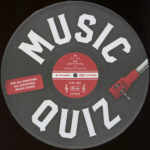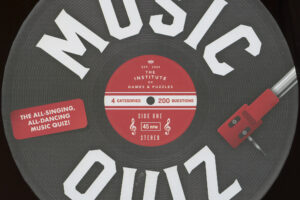WSOU, the radio station of Seton Hall Radio in New Jersey, posted a very nice interview with Tom Keifer, who the guitarist and front man for Cinderella.
The early part of the interview, which was conducted by a DJ only identified as Katie, focuses on Keifer’s new solo album. The most interesting part of the interview from my perspective is when Keifer spoke about how rock radio has changed over the years. Here is the relevant part of the interview, which was transcribed by Blabbermouth.net, the site where I found out about the interview:
I think rock music just as music is what it’s always been: people creating and expressing their emotions through, shall we say, harder-edged sounds. So in that sense, I don’t think anything’s different and everyone has their own way of doing it. I think that the rock radio format has gotten a little bit maybe more narrow than it used to be. And I’m only comparing it to… When I grew up in the ’70s, the stations that I listened to in Philadelphia, rock music was everything from country rock stuff, like Linda Ronstadt and The Eagles and then stuff like Fleetwood Mac on that end of the spectrum to very, very heavy stuff, like [Led] Zeppelin and Black Sabbath, and then everything in between — progressive stuff like Kansas and YES and Rush and even southern rock like [Lynryd] Skynyrd — all of those things you would hear on the same station; that was rock. So when the spectrum goes on one station from Linda Ronstadt to Black Sabbath and everything in between, that’s a very wide spectrum of music and styles and dynamics. And what I’ve seen in the rock world would be the change to me is that the radio format seems to have kind of limited the spectrum of sound, and that feels different to me than from when I grew up.
Keifer, for the record, was born in 1961.

The point is one of the pillars of The Daily Music Break. Music is influenced by the way in which it is offered to the public. “Pennies from Heaven,” the brilliant teleplay by Dennis Potter (who also wrote “The Singing Detective”), focused on a man who sold sheet music of popular songs to record stores in England in the 1930s.
It’s hard to describe (though well worth watching). On the surface, it is the tale of a man struggling to stay above water. An important underlying theme is that England in the 1930s was so obsessed by popular songs that they deeply impacted and perhaps controlled their inner lives. The technique Potter used was to have characters break out in inappropriate song and dance routines, based on these songs, seemingly randomly. Their inner thoughts are only expressed during these routines. When they end, the characters retreat into their polite shells and carry on as if nothing happened.
The influence of technology on culture is, if anything, truer today than in that time. (Bob Hoskins’ BBC version of the teleplay is recommended. Steve Martin starred in the American movie version, which I understand is pretty good as well.)
Jump ahead a few decades and listen what Kiefer is saying: Radio systematically over the years redefined and narrowed the definition of rock music. It did this for commercial reasons: There was more of a market for one version or rock than the others. What was a broad genre when Keifer was a kid has narrowed.
The driver of culture is the technology of the times. It was sheet music and record albums in the days of “Pennies from Heaven” and radio – first AM and then FM – during Keifer’s formative years. The phase that is on us now is silos: People like and self-identify with a certain genre and can very easily limit themselves to hearing just that type of music. Classic rock is one of many.
Here is a bit more on Keifer, who is in the midst of a tour. He was discovered by Gene Simmon’s from KISS, who tried (and obviously failed) to get him into the band. Another early patron was Jon Bon Jovi, who convinced his A&R (artists and repertoire) man to sign the band. The profile says that Keifer gained the reputation of being a prolific songwriter.
In 1990, about the worst thing that could happen to a singer happened to Keifer: He lost his voice. He had several operations and battled depression. His left vocal cord was paralyzed and he “was forced to learn how to sing again.” Cinderella briefly disbanded but is back together. The profile suggests that he has continuing problems with the vocal cord.
Above is “Nobody’s Fool” and below is “The Last Mile.”

















Recent Comments